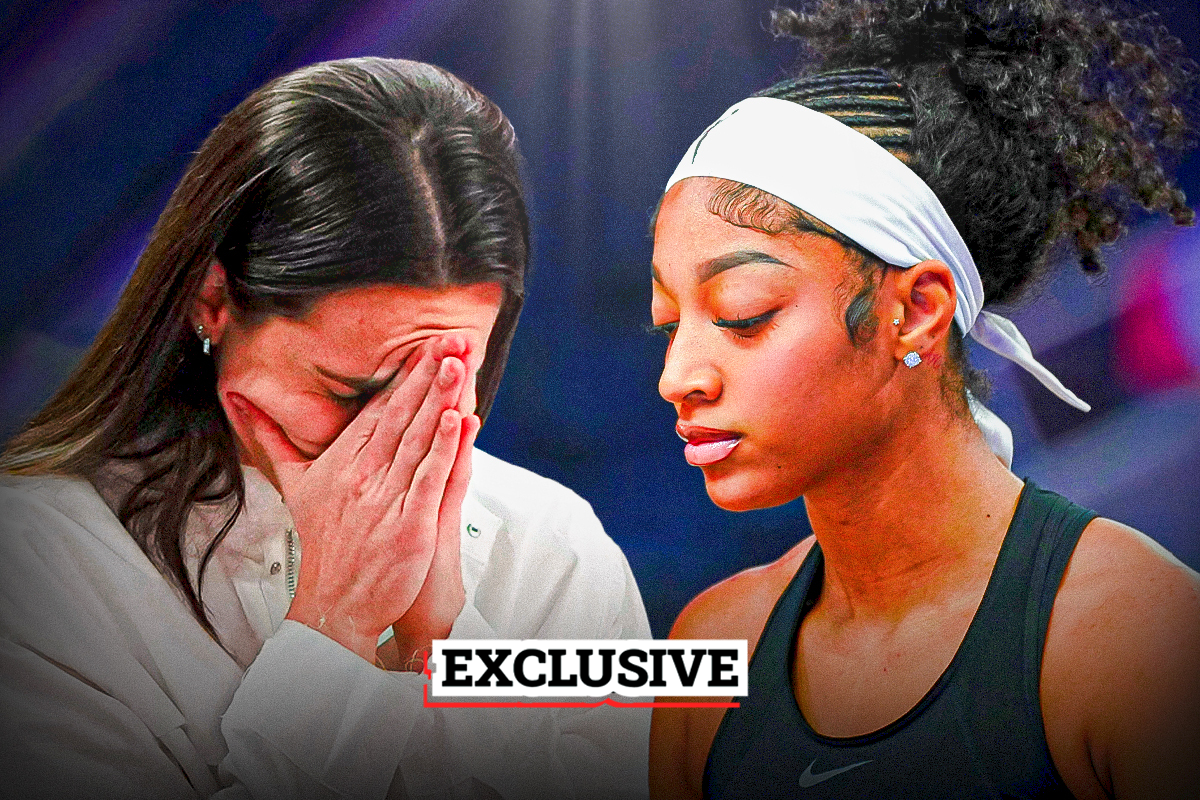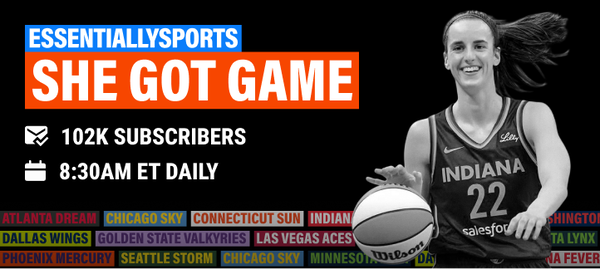

ABL folded, but the WNBA, anchored by the NBA’s television reach, promised longevity the former never managed to achieve. Into that new world came Val Whiting, drafted 17th by the Detroit Shock in 1999. There were big promises she could count on, but instead, she soon found herself slipping into depression and in and out of the lineup. What showed on paper as injuries or “personal reasons” was, in truth, a quiet storm she didn’t know how to navigate. She withdrew into silence, carrying the weight of performance anxiety, low confidence, and mistakes alone.
Watch What’s Trending Now!
Then, years later, in the quiet of the COVID-19 pandemic, Val Whiting opened TikTok and shared a simple video on mental health. That small act cracked open years of silence, revealing not just her own story but the power to reach others. Today, Whiting stands as a certified Mental Performance Coach, Life Skills Instructor, and serves on the National Advisory Board for the Positive Coaching Alliance. We at EssentiallySports reached out to the 2x NCAA champion and former WNBA forward to pull back the curtain on a rather ignored side of the game.
Val Whiting shared some unspoken truths and, in doing so, offered advice that players like Angel Reese and Caitlin Clark can carry far beyond the final buzzer.
ADVERTISEMENT
“As athletes, we all dream of the big moments; the championships, the recognition, the highlight reels. But what people don’t always see are the battles behind the scenes: injuries that keep you off the court, or the mental toll that comes with pressure, criticism, or uncertainty,” Whiting told EssentiallySports.
And yes, while it’s been over two decades, the struggles Val went through in the 1990s are practically still the same in today’s world.
“I’ve lived both sides of that. I’ve been cut, traded, injured, and I’ve also struggled with my own mental health while playing at the highest level. That’s why I can relate to what players like Caitlin Clark and Angel Reese are going through,” Whiting added.
ADVERTISEMENT

ADVERTISEMENT
Whiting’s college career was remarkable: Pac-12’s all-time leading scorer and rebounder, 2x All-American, 2x Pac-12 Player of the Year, National Player of the Year finalist, and an ESPY nominee. Her dominance carried into the ABL, where she led the San Jose Lasers in rebounds and ranked second in scoring and rebounding with the Seattle Reign.
But things shifted when she entered the W.
ADVERTISEMENT
Val Whiting first faced depression during her debut WNBA season with the Detroit Shock in 1999, and she ended up stepping away for the following year. After marriage and motherhood, she joined the Minnesota Lynx next, playing 26 games in 2001 (starting 15) and 6 in 2002 before leaving the league.
So, Whiting knows the pressure that comes along with expectations and success.
“For Caitlin, the frustration of being limited to just 13 games this season has to be tough. When your identity is so tied to your sport, sitting out feels like losing a part of yourself,” Whiting told EssentiallySports.
ADVERTISEMENT
A similar emotion was also painfully evident in Caitlin Clark’s season-ending message: “Disappointed isn’t a big enough word to describe how I am feeling”.
Clark poured hours into the gym, tried rehab, left no stone unturned, but her right groin injury and bone bruise wouldn’t let her return. The inability to play, weighed down by a brutal season, and to give fans who traveled miles a glimpse of greatness… the guilt hurt hard.
So here’s Val Whiting’s “key” to a breakthrough:
ADVERTISEMENT
“My advice to her (Caitlin Clark) would be: keep perspective. You’re more than your stats or minutes on the court. Use the time to strengthen other areas of your game, your leadership, your voice, your vision for how you want to impact the game long-term,” she said.
But the former Iowa Hawkeyes star isn’t the only one facing setbacks. Even Angel Reese is navigating rough waters. Reese has handled cyberbullying with charm before, but this time the challenge is different. Her own words have left a deeper mark.
As Whiting explained in her interview with EssentiallySports: “For Angel, navigating constant debate and outside noise is its own kind of injury. Words cut deep, and public scrutiny can weigh just as heavily as a physical setback.”
ADVERTISEMENT
For Chi-Town Barbie, it’s her competitiveness and drive to help the Windy City team succeed that capped off her sophomore season, but not in a good way. She openly admitted she never intended to hurt her teammates and offered an apology, explaining that her words had been misconstrued. But did it matter?
Not really—the damage was already done. Reese’s comments, labeled “detrimental to the team,” earned her a half-game suspension and a lot of buzz that’s still spreading like wildfire.

Getty
INDIANAPOLIS, INDIANA – JUNE 16: Caitlin Clark #22 of the Indiana Fever and Angel Reese #5 of the Chicago Sky look on during a game at Gainbridge Fieldhouse on June 16, 2024 in Indianapolis, Indiana. NOTE TO USER: User expressly acknowledges and agrees that, by downloading and or using this photograph, User is consenting to the terms and conditions of the Getty Images License Agreement. (Photo by Emilee Chinn/Getty Images)
Some criticized Reese, others supported her, but few saw the mental toll it took. But Val understands, and that’s why she’s there to have her back. After all, Bayou Barbie is just a 23-year-old who loves to hoop.
ADVERTISEMENT
“My advice to her is to stay grounded in her why, why she plays, who she plays for, and what she believes in. Not everyone will agree with her, but that’s okay. The athletes who change the game rarely do it without resistance,” Whiting added.
Whiting’s perspective is crucial, especially as recent studies show that nearly 45% of elite athletes report symptoms of depression and anxiety, a sharp rise from previous years. Among these athletes, as a report from the International Olympic Committee found, women are at a higher risk. So, it’s time to remember that athletes are humans, too. Words and comments from fans don’t just sting; they can affect mental health and performance.
A study by the National Library of Medicine notes that mental fatigue can impair basketball skills, from free throws and three-pointers to decision-making on the court. Yet, Val Whiting knows that wishing for an ideal world is a pipe dream, and that’s why she wants to equip young people, especially women, with the power to get through things.
“At the end of the day, whether it’s Caitlin, Angel, or any rising star, the key is remembering this: the mental game is just as important as the physical. Train your calm, your resilience, your confidence because when pressure comes, those skills will carry you further than talent alone ever could,” Whiting concluded.
We’ll leave you with that.
ADVERTISEMENT
ADVERTISEMENT
ADVERTISEMENT
